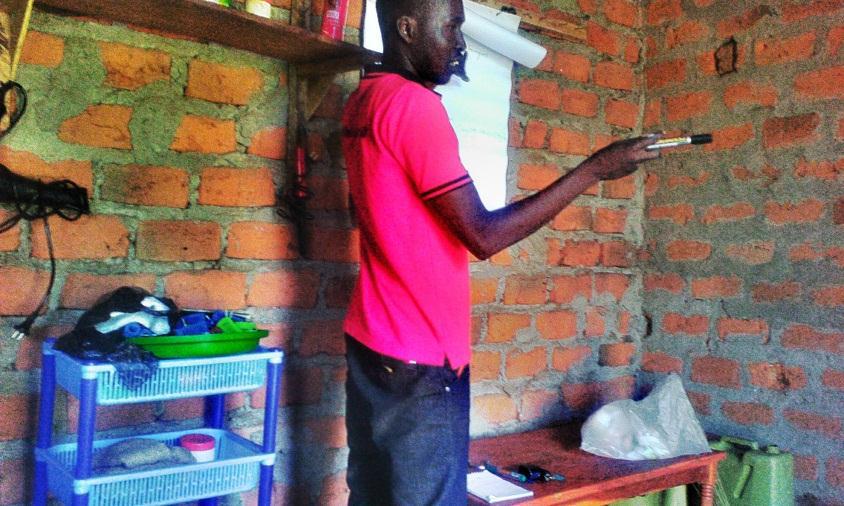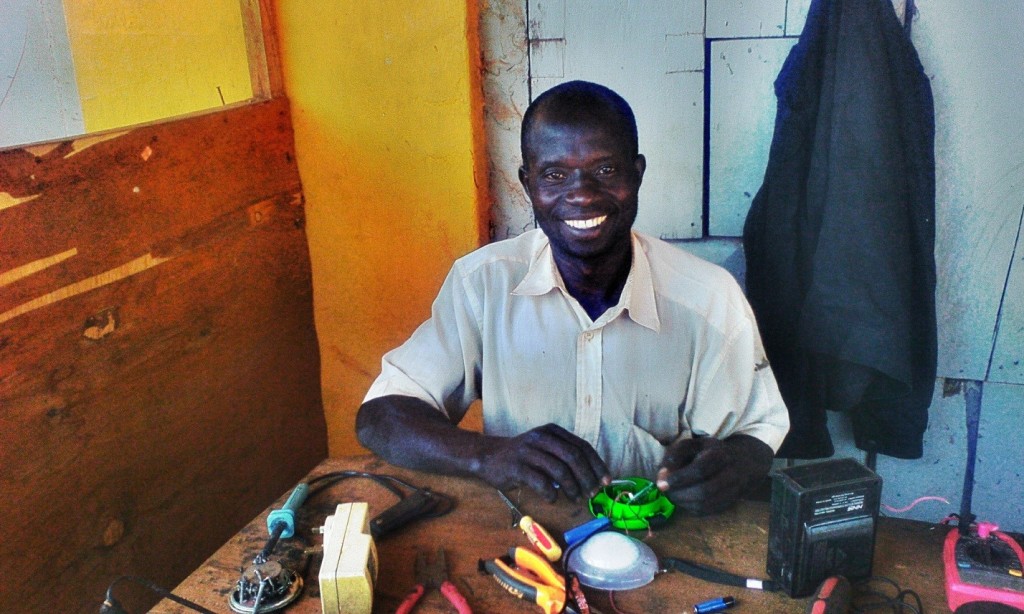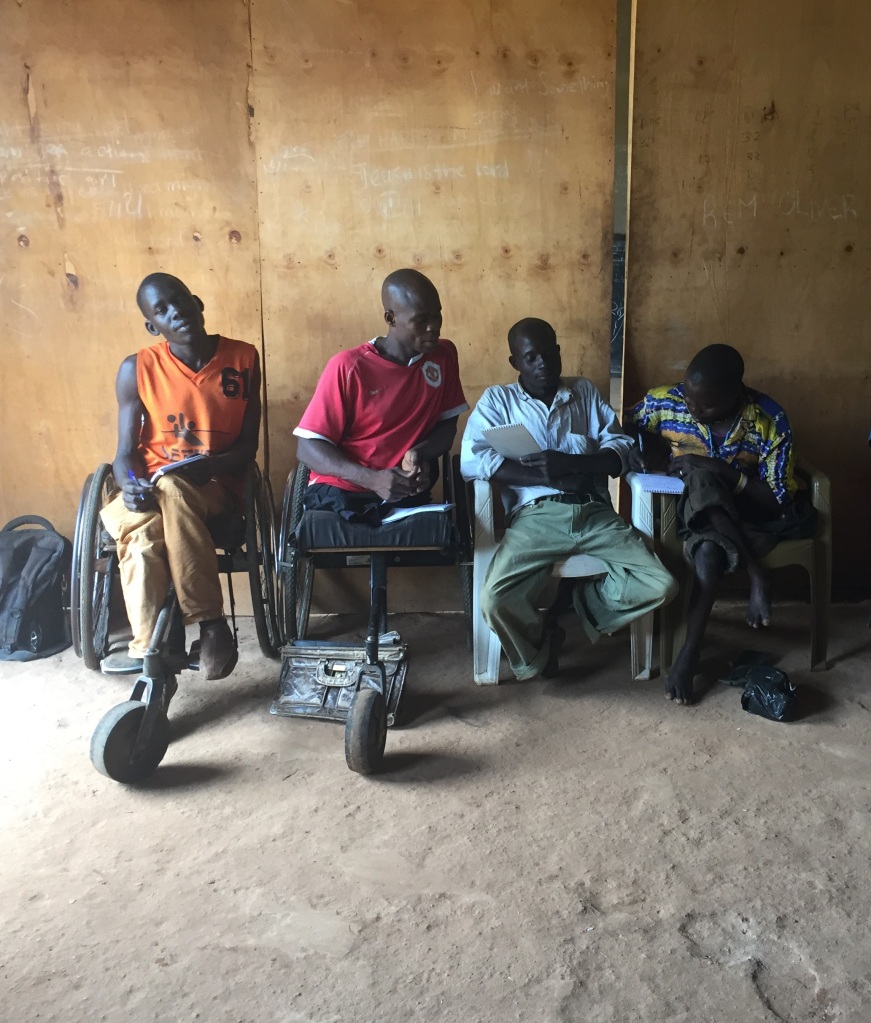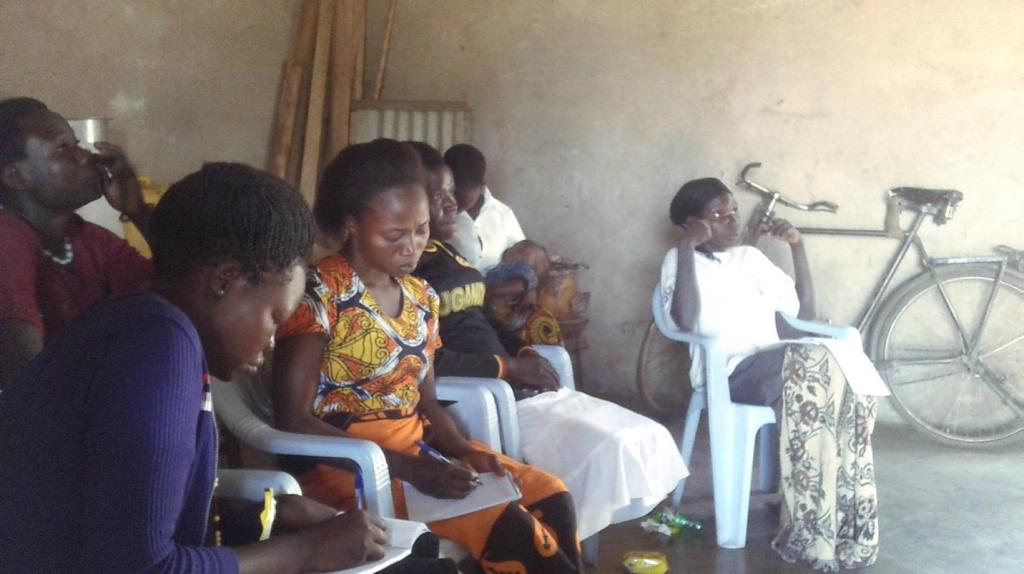
During August, the ETC @ GDPU Project Officer and Project Leader followed up on business plan development, record keeping and conflict management making sure that they were being implemented by each business enterprise. A busy training programme continued and proposed activities for September look equally focused.

Training
Skills training were offered in Hairdressing, Electronic Repair and Maintenance and Knitting & Sweater Weaving in Omoro Acet Centre and Gulu Municipality targeting 4 members of NYEKO RAC HAIRDRESSING AND COSMETOLOGY, 2 members of RWOT AYE TWERO KNITTING and 6 Members of GULU PWDS ELECTRONICS REPAIR & MAINTENANCE.
Training: Village Savings and Loan Associations
Trainings in Village Savings and Loan Associations (micro finance) were carried out. VSLA pass books were distributed to the saving groups created by each enterprise to encourage the culture of savings in their enterprise.
Training: Conflict Resolution
Training in Group Dynamics under Conflict Resolutions was carried out in Acet.

Challenges
But as the initial stages are completed, challenges were registered by the project officer during his visits. These were: poor attendance; high expectation for money (Especially refusal to attend meetings without payment see Sitting Fees below)); difficult attitudes; skills gaps; luck of trust from customers etc.
Challenges: Gulu
These challenges were particularly noticeable in Gulu, with high levels of absenteeism, lack of commitment to customers and work, lack of skills in: radio; TV; video decks; speakers; computer repairs. Members only specialise in phone repair which does not bring in enough income. Finding a qualified instructor to train Gulu PWDs in electronic repair and maintenance has not yet been resolved.

Although the Project Officer suggested their fellow disabled electrician (Akera Robert), who has all the skills they want, members were not interested. The P O believes that there is no unity and love among PWDs in Gulu municipality, that is the reason why most of them are not successful, because of the differences amongst them.

Challenges: Sitting Fees
Sitting Fees (or payment for attending trainings or meetings) are a great example of the unintended consequences of well intended actions. I believe that sitting fees were originally paid during the conflict, as a means of quickly getting money directly to those who badly needed it and bypassing those who would take a substantial cut. But now, demand for sitting fees and refusal to attend without payment is a constant problem. Most NGOs refused to pay sitting fees because the payments eat up small budgets and badly distort training sessions. The people you really need to reach either refuse to turn up or invitations are issued in turn to those who have not yet been paid a fee or to those who are powerful enough to demand that they always get one. Sessions are either taken up with endless arguments as to why participants should be paid substantial sums, or on the odd occasion where fees are paid, participants leave, in body or mind, once they have been paid because they feel their work had been done; either way nothing is achieved.

Challenges: Solutions?
The only surprise is that the challenges for ECT @ GDPU had not begun earlier, these are all difficulties that are common on any project of this type in this sort of context.
There is no simple solution, this culture (Sitting Fees especially) is deeply embedded and will take years to change. But we intend to try some of the approaches listed below and begin that process
Thinking about the simplest non-financial reward systems is an important part of the pilot programme. Actually, faced with this problem during the earlier Youth Development Programme we found that:
- educational games
- sport or other competitions
- Cultural activities, eg dance and drama
- and of course, food.
Were all good ways of bringing people to meetings and making them engage without concentrating solely on the money.
- Regular VSLA meetings can also be a useful time to carry out training.

Challenges: Solutions/ Communications and Mentors
Group dynamics, and communication could be the key that unlocks this door.
During the VSLA sessions it was noted that members will not take leadership roles, even just for the workshop; leadership training as part of a drive to improve self-esteem might be worth following up too.
Relationship between the groups, their customers and skills trainers (especially the Gulu PWDS) are a challenge that could be met by finding the right mentors/ role models to show members where their hard work might lead to in the future. Groups need to see why they are doing what they are doing, how the rewards are not immediate but are worth waiting for; could mentors help in that aim?

Conclusion
None of the challenges noted above are unusual, they are to be expected in this context and in a project of this type. There is no need to feel downhearted, it is important to remember that this is still the pilot phase, there are still opportunities to work on many different approaches and be experimental; many exciting possibilities ahead. We must keep pushing on well!
